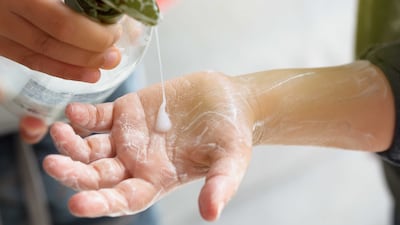Ever wonder why you get bitten by mosquitoes while friends and family member escape welt-free?
Scientists at Virginia Tech in the US have found certain soaps, combined with peoples' natural odour profiles, attract the biting insects while others repel them.
Four human volunteers using four different brands of soap took part in the study, published in the journal iScience on Wednesday.
The Virginia Tech researchers found that the soaps — Dial, Dove, Native and Simple Truth — interacted with each participant's natural body odour in different ways.
Some of the volunteers were more likely to repel mosquitoes with their natural scent than others, but soap use also made a difference.
Research published last year has already found that certain people are “mosquito magnets” due to certain chemicals their bodies produce.
The experiment used only female mosquitoes as only they suck blood. Human scents were transferred on to cloths to test attractiveness, in an attempt to eliminate other factors.
Washing with Dove and Simple Truth increased the attractiveness of some — but not all — volunteers to mosquitoes, while washing with Native soap tended to repel the insects.
“It's remarkable that the same individual that is extremely attractive to mosquitoes when they are unwashed can be turned even more attractive to mosquitoes with one soap, and then become repellent or repulsive to mosquitoes with another soap,” says senior author and neuroethologist Clement Vinauger.
But you do not have to buy that exact brand to get the same impact.
“I would choose a coconut-scented soap if I wanted to reduce mosquito attraction,” said Mr Vinauger.
The team plans to widen its research to include other soap types and a broader range of participants, but it also aims to explore how soap affects mosquito preference over a longer period of time.
“We're very curious to look at the time course of this effect — so for example, if you take a shower in the morning, does it still matter to mosquitoes in the evening?” said Mr Vinauger.
Mosquitoes can be found in almost every part of the world and outnumber most other animals except ants and termites.
They can carry a number of diseases deadly to humans, including Zika, West Nile, Chikungunya, dengue and malaria.
The World Health Organisation has estimated that 725,000 people are killed annually by diseases passed on by mosquitoes, with 600,000 of those dying from malaria.
A number of pioneering projects have sought to battle the creatures' ability to pass on disease.


